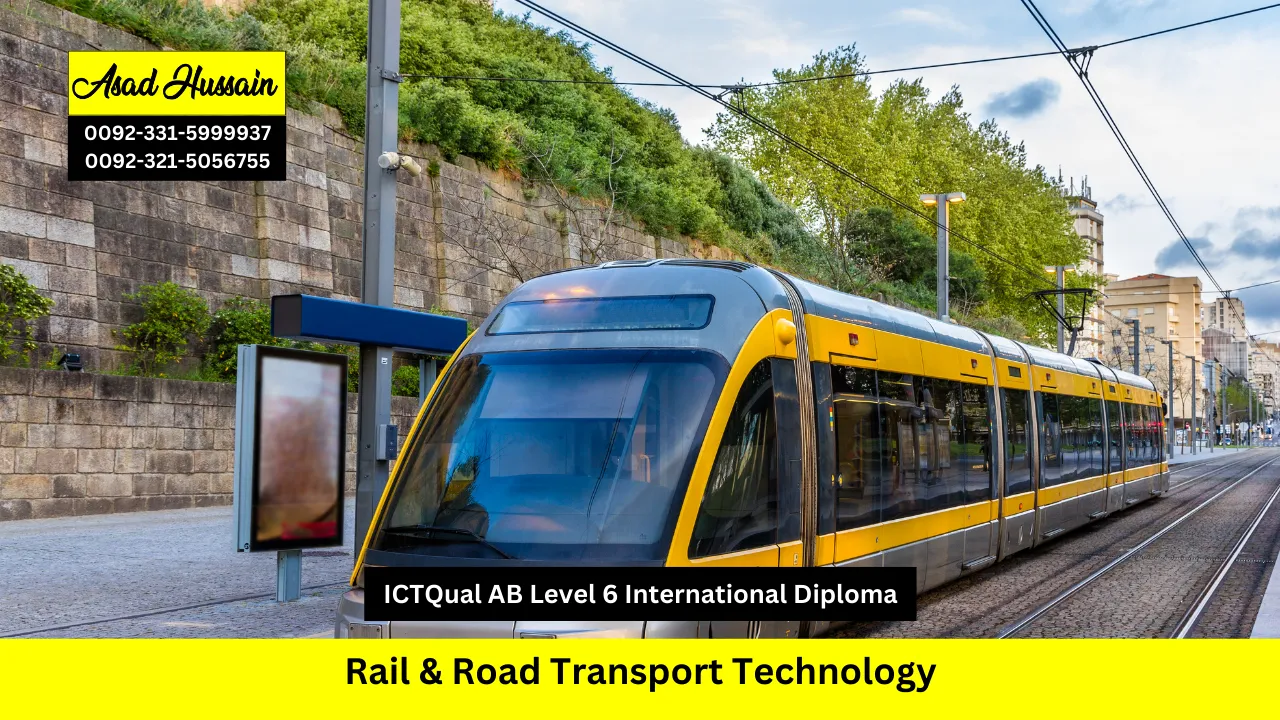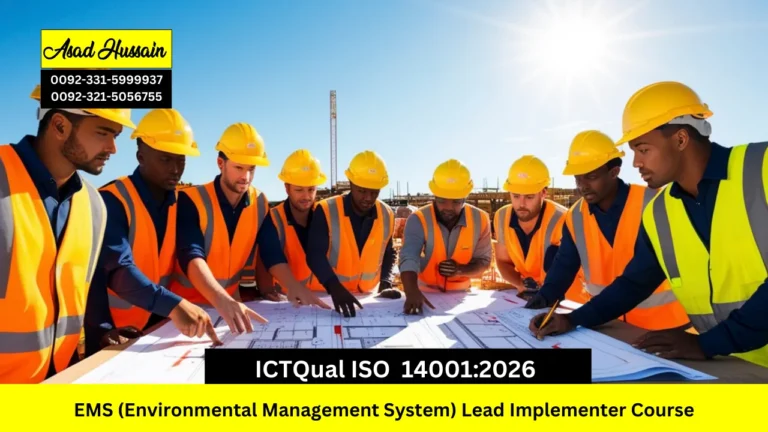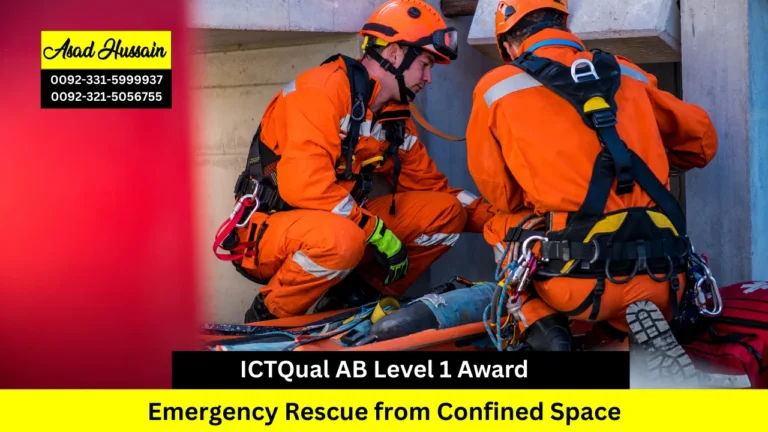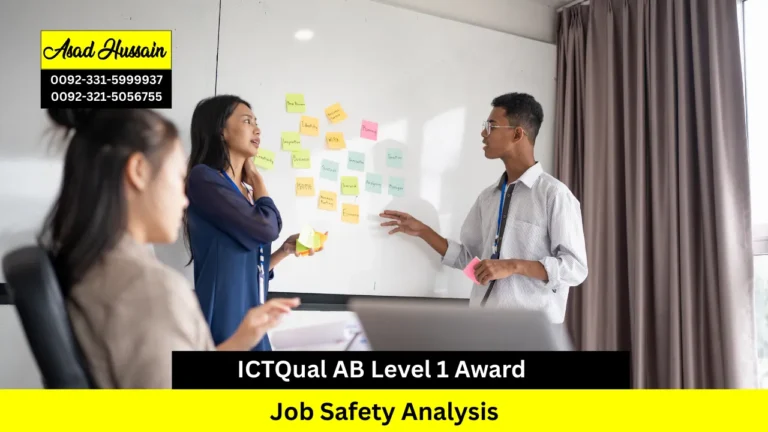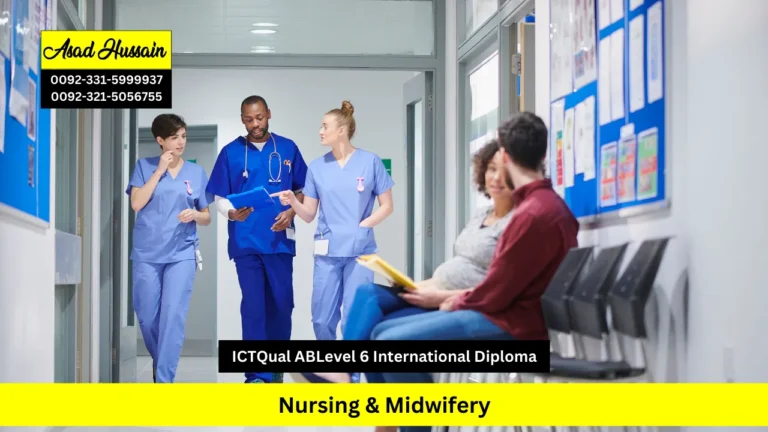Efficient and safe rail and road transport systems are the backbone of modern economies, enabling the smooth movement of goods and passengers while supporting global trade and urban development. The ICTQual AB Level 6 International Diploma in Rail & Road Transport Technology provides learners with advanced knowledge, practical skills, and professional competencies required to design, manage, and optimize transport operations across rail and road networks.
ICTQual ABLevel 6 International Diploma in Rail & Road Transport Technology is designed for both fresh learners and professionals seeking to advance their expertise in transport technology. The ICTQual ABLevel 6 International Diploma in Rail & Road Transport Technology covers a wide range of topics including transport planning and management, vehicle and rolling stock technology, infrastructure design, traffic control, safety and compliance, logistics integration, and emerging transport technologies. Learners gain hands-on experience through case studies, project-based assignments, and simulations, ensuring they can apply theoretical concepts to real-world transport scenarios effectively.
Graduates of this diploma will be equipped to analyze transport system performance, implement operational strategies, enhance safety and compliance, and contribute to sustainable and innovative solutions in the transport sector. The ICTQual ABLevel 6 International Diploma in Rail & Road Transport Technology also develops critical thinking, problem-solving, and leadership skills essential for managing complex transport networks.
Program Highlights
Study Units
Year 1 – Foundations of Rail & Road Transport Technology
- Introduction to Rail & Road Transport Industry
- Principles of Transport Operations
- Transport Engineering Fundamentals
- Traffic Management and Control Systems
- Transport Law and Regulatory Frameworks
- Infrastructure Planning and Maintenance Basics
- Safety and Security in Rail & Road Transport
- Environmental Sustainability in Transport
- Logistics and Supply Chain Management
- Principles of Risk Management in Transport Operations
- Transport Economics and Policy
- Professional Ethics and Communication in Transport
Year 2 – Applied Transport Operations & Management
- Advanced Rail and Road Operations Planning
- Freight and Passenger Transport Management
- Transport Logistics Integration and Optimisation
- Infrastructure Project Management
- Safety Compliance and Risk Mitigation in Transport
- Crisis Management and Emergency Response
- Transport Finance, Budgeting, and Cost Control
- Environmental Compliance and Emissions Management
- Digitalisation and Smart Transport Technologies
- Human Resource Management in Transport Organisations
- Applied Case Studies in Transport Operations
- Operational Simulations and Practical Exercises
Year 3 – Strategic Leadership & Advanced Transport Management
- Strategic Management in Rail & Road Transport
- Transport Policy, Governance, and International Standards
- Legal Contracts and Regulatory Compliance in Transport
- Leadership and Decision-Making in Transport Operations
- Advanced Risk and Safety Management
- Infrastructure Planning and Strategic Development
- Global Supply Chain Management for Transport
- Emerging Technologies and Innovation in Transport
- Sustainability and Climate Change Adaptation in Transport
- Research Methods for Transport Technology
- Independent Research Project in Rail & Road Transport
- Capstone Project: Applied Strategic Transport Management
he ICTQual AB Level 6 International Diploma in Rail & Road Transport Technology is designed to equip learners with advanced technical knowledge and practical skills in rail and road transport systems, traffic management, infrastructure design, and operational safety. To ensure learners are prepared for the ICTQual ABLevel 6 International Diploma in Rail & Road Transport Technology, the following entry requirements must be met:
Age Requirements
- Applicants must be at least 18 years old at the time of registration.
Educational Requirements
- A Level 5 diploma or equivalent in transport technology, civil engineering, mechanical engineering, logistics, or related technical fields.
- Candidates with A-levels, vocational qualifications, or high school diploma in technical or engineering subjects may also be considered.
Professional Experience
- For experienced professionals, a minimum of 3–5 years of relevant work experience in transport operations, railway systems, road management, or traffic control is preferred.
- Practical experience in transport planning, vehicle operations, or infrastructure projects is advantageous.
English Language Proficiency
- Applicants must demonstrate proficiency in English for comprehension, technical documentation, and professional communication.
- Evidence of IELTS 5.5 or equivalent, or prior education in English, is required.
Related Course: Learners may also consider the ICTQual AB Level 6 International Diploma in Logistics & Supply Chain Technology, which complements transport management with logistics and operational integration skills.
Meeting these entry requirements ensures learners are well-prepared to engage with advanced course content, complete assessments successfully, and excel in professional roles within rail and road transport management. Applicants who satisfy these criteria are positioned for a rewarding career in global transport systems and infrastructure management.
The ICTQual AB Level 6 International Diploma in Rail & Road Transport Technology equips learners with advanced knowledge, practical skills, and strategic competencies essential for managing, optimizing, and innovating in rail and road transport systems. ICTQual ABLevel 6 International Diploma in Rail & Road Transport Technology combines theoretical understanding with hands-on applications, ensuring graduates are prepared for professional and leadership roles in the global transport industry.
Year 1 – Foundations of Rail & Road Transport Technology
Introduction to Rail & Road Transport Industry
- Explain the structure, functions, and operations of rail and road transport systems.
- Analyze the economic, social, and environmental impact of transport networks.
- Apply basic industry concepts to real-world transport scenarios.
Principles of Transport Operations
- Understand key principles of rail and road transport management.
- Assess operational efficiency and identify areas for improvement.
- Apply operational techniques to optimize transport workflows.
Transport Engineering Fundamentals
- Demonstrate knowledge of engineering principles in transport infrastructure.
- Analyze vehicle and track/road system performance.
- Apply engineering solutions to basic transport challenges.
Traffic Management and Control Systems
- Understand traffic flow theory and control mechanisms.
- Evaluate traffic management strategies for efficiency and safety.
- Apply control systems to monitor and regulate transport networks.
Transport Law and Regulatory Frameworks
- Explain legal frameworks governing rail and road transport.
- Apply regulatory standards to operational decision-making.
- Assess compliance with transport laws and safety regulations.
Infrastructure Planning and Maintenance Basics
- Understand the principles of transport infrastructure planning.
- Develop basic maintenance schedules for rail and road systems.
- Apply practical methods for infrastructure upkeep and inspection.
Safety and Security in Rail & Road Transport
- Identify key safety risks in transport operations.
- Apply safety management systems to minimize accidents and hazards.
- Evaluate security measures for passengers, cargo, and infrastructure.
Environmental Sustainability in Transport
- Explain environmental impacts of transport operations.
- Apply sustainable practices and green transport principles.
- Evaluate strategies for emission reduction and energy efficiency.
Logistics and Supply Chain Management
- Understand the role of logistics in rail and road transport.
- Apply supply chain principles to transport operations.
- Analyze the efficiency of transport-linked logistics systems.
Principles of Risk Management in Transport Operations
- Identify operational and strategic risks in transport.
- Apply risk assessment and mitigation strategies.
- Evaluate risk management effectiveness using measurable indicators.
Transport Economics and Policy
- Explain economic principles relevant to transport planning and operations.
- Analyze the impact of policy on transport systems and management.
- Apply economic reasoning to decision-making in transport operations.
Professional Ethics and Communication in Transport
- Demonstrate professional communication in reports, presentations, and teamwork.
- Apply ethical standards in transport management and operational decisions.
- Develop interpersonal and collaborative skills for professional contexts.
Year 2 – Applied Transport Operations & Management
Advanced Rail and Road Operations Planning
- Develop operational plans for complex transport networks.
- Apply scheduling and resource allocation techniques effectively.
- Monitor operational performance using measurable KPIs.
Freight and Passenger Transport Management
- Manage freight and passenger transport operations efficiently.
- Evaluate service quality, cost, and operational efficiency.
- Implement practical solutions to improve transport performance.
Transport Logistics Integration and Optimisation
- Integrate logistics and transport operations for efficiency.
- Apply optimization techniques to route planning and scheduling.
- Evaluate system performance using data-driven analysis.
Infrastructure Project Management
- Plan, execute, and monitor transport infrastructure projects.
- Apply project management tools to ensure timely and cost-effective delivery.
- Assess project outcomes using measurable objectives.
Safety Compliance and Risk Mitigation in Transport
- Implement safety protocols and regulatory compliance measures.
- Conduct risk assessments and apply mitigation strategies.
- Monitor and review compliance across operational processes.
Crisis Management and Emergency Response
- Develop crisis management and emergency response plans.
- Apply problem-solving skills to real-time transport emergencies.
- Evaluate the effectiveness of emergency response measures.
Transport Finance, Budgeting, and Cost Control
- Understand budgeting and financial principles in transport operations.
- Monitor costs and apply cost-control measures.
- Analyze financial performance using measurable indicators.
Environmental Compliance and Emissions Management
- Apply environmental regulations in transport operations.
- Implement strategies for emissions reduction and sustainability.
- Evaluate the environmental performance of transport systems.
Digitalisation and Smart Transport Technologies
- Utilize smart transport technologies and digital tools.
- Apply data analysis and automation to optimize operations.
- Evaluate technology adoption for operational efficiency.
Human Resource Management in Transport Organisations
- Apply HR principles to manage transport teams effectively.
- Develop strategies for team motivation, training, and performance evaluation.
- Assess workforce efficiency and productivity in operational settings.
Applied Case Studies in Transport Operations
- Analyze real-world transport scenarios using theoretical knowledge.
- Propose evidence-based solutions to operational challenges.
- Evaluate outcomes using measurable performance indicators.
Operational Simulations and Practical Exercises
- Participate in simulation exercises replicating transport operations.
- Apply problem-solving and decision-making skills in practical scenarios.
- Assess performance using quantifiable criteria.
Year 3 – Strategic Leadership & Advanced Transport Management
Strategic Management in Rail & Road Transport
- Develop strategic plans for transport networks aligned with organizational goals.
- Apply analytical tools to assess strategic performance.
- Evaluate strategic outcomes using measurable KPIs.
Transport Policy, Governance, and International Standards
- Understand national and international transport policies and standards.
- Apply governance frameworks to operational and strategic decisions.
- Assess compliance with global regulatory requirements.
Legal Contracts and Regulatory Compliance in Transport
- Draft and interpret transport-related contracts.
- Ensure operational compliance with legal and regulatory frameworks.
- Evaluate contractual performance and compliance effectiveness.
Leadership and Decision-Making in Transport Operations
- Demonstrate leadership in complex transport environments.
- Apply structured decision-making frameworks to operational challenges.
- Evaluate the outcomes of leadership and managerial decisions.
Advanced Risk and Safety Management
- Develop comprehensive risk management plans for transport systems.
- Implement advanced safety protocols and mitigation strategies.
- Evaluate risk management effectiveness using measurable standards.
Infrastructure Planning and Strategic Development
- Plan and manage transport infrastructure projects strategically.
- Apply analytical and engineering principles to optimize networks.
- Assess infrastructure performance using measurable indicators.
Global Supply Chain Management for Transport
- Integrate transport operations into global supply chains.
- Analyze efficiency, cost, and sustainability of international transport networks.
- Apply strategic supply chain management techniques to optimize performance.
Emerging Technologies and Innovation in Transport
- Analyze the impact of innovations such as automation, IoT, and AI in transport.
- Apply emerging technologies to optimize operations and safety.
- Evaluate technology adoption for operational and strategic benefits.
Sustainability and Climate Change Adaptation in Transport
- Apply sustainable practices and climate adaptation strategies in transport.
- Assess environmental impact and develop mitigation plans.
- Implement green transport solutions aligned with global sustainability standards.
Research Methods for Transport Technology
- Apply quantitative and qualitative research methods in transport contexts.
- Analyze data to support operational and strategic decision-making.
- Present research findings using professional and measurable standards.
Independent Research Project in Rail & Road Transport
- Conduct independent research on relevant transport technology topics.
- Apply analytical and problem-solving skills to research projects.
- Document and present findings professionally using measurable outcomes.
Capstone Project: Applied Strategic Transport Management
- Plan and execute a comprehensive strategic transport project.
- Integrate knowledge from all units to address real-world transport challenges.
- Evaluate project success using quantifiable performance indicators.
Upon completion, learners will possess advanced knowledge, practical skills, and professional competencies to manage, optimize, and innovate in rail and road transport systems. Graduates are prepared for leadership, operational management, and strategic decision-making roles in the global transport industry.
The ICTQual AB Level 6 International Diploma in Rail & Road Transport Technology is designed for learners who are motivated to develop advanced technical knowledge, practical skills, and strategic competencies in rail and road transport management. ICTQual ABLevel 6 International Diploma in Rail & Road Transport Technology is suitable for both fresh learners and professionals seeking to advance their careers in the transport sector.
1. Educational and Professional Background
- Learners with prior education in transport technology, civil engineering, mechanical engineering, logistics, or related technical fields.
- Professionals working in rail or road transport, infrastructure management, traffic control, or transport operations seeking career advancement.
2. Analytical and Problem-Solving Skills
- Individuals who enjoy analyzing complex transport and logistics challenges.
- Learners capable of applying strategic thinking to operational and infrastructure decision-making.
3. Technology-Savvy Learners
- Comfortable using digital tools, transport management software, and data analytics platforms.
- Interested in leveraging smart transport technologies to optimize operations and efficiency.
4. Leadership and Teamwork
- Learners capable of collaborating effectively in project teams and workplace environments.
- Individuals aspiring to lead transport operations or infrastructure projects.
5. Ethical and Professional Mindset
- Committed to professional ethics, safety standards, and compliance in transport management.
- Motivated to maintain high standards in operational and strategic decision-making.
6. Career-Oriented and Goal-Driven
- Learners focused on advancing in global transport management, infrastructure planning, or operational leadership roles.
- Individuals aiming to enhance employability and professional recognition internationally.
ICTQual ABLevel 6 International Diploma in Rail & Road Transport Technology is ideal for learners seeking to combine strategic knowledge, practical skills, and professional expertise, preparing them to excel in rail and road transport operations, infrastructure management, and strategic transport leadership roles globally.

